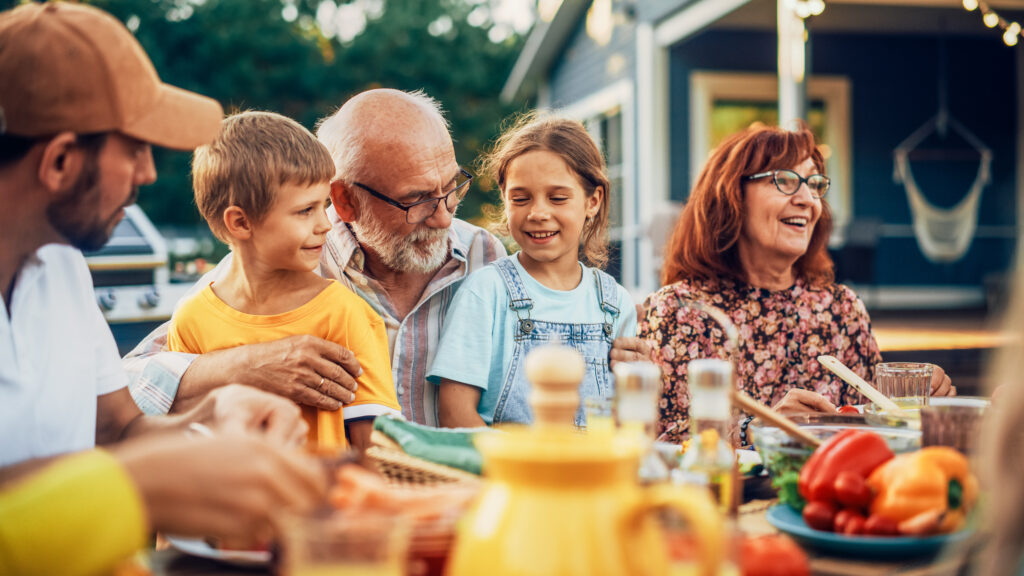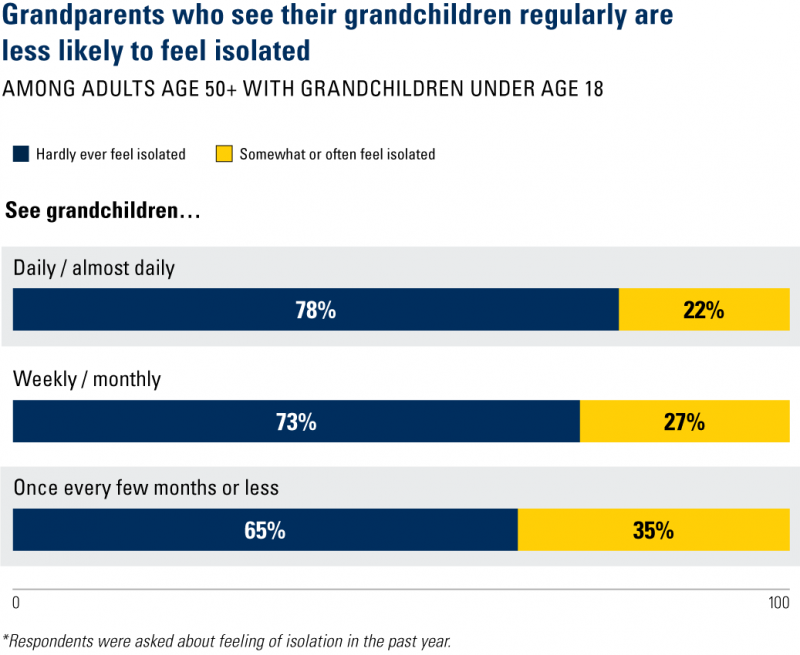
By Alice Benjamin, MSN, FNP-C
How Quality Time with Grandkids Can Boost Health, Happiness, and Combat Loneliness for Older Adults
As families come together for the holidays, a new poll sheds light on the special role grandchildren play in the lives of their grandparents — and vice versa. Findings from the National Poll on Healthy Aging, conducted by the University of Michigan, highlight that spending time with grandkids can positively impact grandparents’ mental well-being and reduce feelings of loneliness. This research is particularly timely given that the U.S. Surgeon General recently declared social isolation a public health epidemic, emphasizing the urgent need to address loneliness and its impact on health outcomes, especially among older adults.How Quality Time with Grandkids Can Boost Health, Happiness, and Combat Loneliness for Older Adults
Grandparenting and Mental Health
The poll indicates that having grandchildren can have a real impact on grandparents’ feelings of social connectedness. Among those surveyed, older adults with grandchildren were less likely to report feeling isolated or experiencing mental health challenges. In fact, 72% of grandparents said they “hardly ever” feel isolated, compared to only 62% of those without grandchildren. This is significant because social isolation is a known risk factor for mental health decline in older adults, as highlighted by the Surgeon General.
As part of combating this epidemic of isolation, healthcare providers are encouraged to discuss family connections with their older patients, particularly those experiencing loneliness or depression. Engaging with grandchildren — even virtually — could improve mental health and offer a valuable lifeline to those at risk.
The Important Role of Grandparents
For nearly half (49%) of grandparents surveyed, their role includes actively providing care for grandchildren under 18 at least once every few months. Among these caregivers, 20% offer support weekly, while 8% are involved daily. This trend is especially notable among Hispanic grandparents, 15% of whom provide daily care, reflecting cultural norms of family interdependence and caregiving.
In addition to childcare, many grandparents provide financial support. Approximately 32% of grandparents have helped cover costs for their grandchildren over the past year, contributing to expenses like clothing, meals, education, and even extracurricular activities.
The Bond Between Grandparents and Grandchildren
Regular visits with grandchildren seem to play a role in reducing loneliness. Those who see their grandkids frequently were more likely to report positive mental health and less social isolation. In fact, 78% of grandparents who see their grandchildren daily or almost daily report rarely feeling isolated, compared to only 65% of those who see them every few months. This reinforces the value of family connections for older adults’ mental health and emotional resilience.
Multigenerational Living and Cultural Perspectives
While multigenerational living arrangements are not as common in some Western societies, they remain a staple in many cultures worldwide. In Hispanic, Asian, and African American communities, for example, it’s far more common for grandparents to live with their children and grandchildren. In Asian cultures, the concept of “filial piety” emphasizes respect and care for elders as an honored family role. Similarly, Hispanic and African American families often place high value on family unity, with grandparents contributing to raising and nurturing children.
In the United States, social standards have often favored independence and separate households, sometimes viewing multigenerational homes as unconventional or less desirable. However, studies, including the recent National Poll on Healthy Aging, suggest that these arrangements have health benefits, especially for grandparents. Increased family interaction reduces loneliness, strengthens mental health, and provides a support network for all family members.
The Health Benefits of Multigenerational Homes
For older adults, living with family can offer mental and emotional benefits. Daily interaction with family members, especially grandchildren, provides companionship and a sense of purpose. These benefits help counter social isolation, a risk factor for depression, cognitive decline, and other health issues. Additionally, children in multigenerational households may benefit from the support and guidance of their grandparents, creating a rich environment of learning and care.
More Than Just a Meal: Building Bonds Over Food

For many families, food is a shared experience that brings generations together. The poll found that 61% of grandparents had shared a meal with their grandkids in the past month, and 36% cooked or baked together. These interactions provide not only a chance to bond but also an opportunity for grandparents to pass down family recipes and share healthy eating habits.
Kate Bauer, Ph.D., an associate professor at U-M, emphasized the importance of these experiences, noting that grandparents have a unique opportunity to encourage positive messages about nutrition and body image to their grandchildren.
Living Arrangements and ‘Grandfamilies’
Approximately 6% of adults over 50 live with at least one grandchild, forming what some call “grandfamilies,” where grandparents may have primary custody or a central caregiving role. For some children, this arrangement provides critical stability during challenging times. These unique family dynamics deserve more research to better understand the impact of such caregiving on both the grandparents and grandchildren.
What This Means for Grandparents and Families
As these findings reveal, the grandparent-grandchild relationship is meaningful for both parties. Grandparents gain emotional benefits, reduced loneliness, and improved mental well-being from being involved in their grandkids’ lives, while grandchildren gain valuable support, care, and wisdom.
With the U.S. Surgeon General’s declaration that social isolation is a public health epidemic, fostering connections between generations takes on even greater importance. Strengthening these family bonds not only provides emotional support but can be a powerful tool in the fight against loneliness. This holiday season, spending time together may be one of the best gifts families can give each other, building connections that support health and well-being across generations.
Disclaimer: This blog provides general health information and is not a substitute for professional medical advice.




